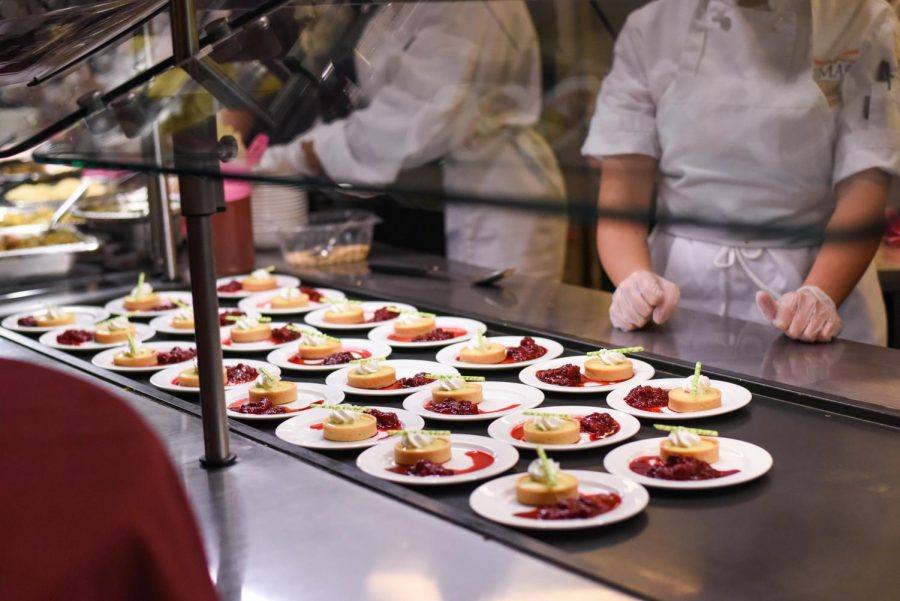Welcome to the University of Massachusetts, where you will be told that hate has no home. The sad truth, you will quickly find, is that this is not the case.
Because how can UMass, which proudly advertises itself as an accepting community, fulfill that vision without a designated vegan dining hall? In recent years, UMass has sought to expand its mission of inclusivity, all while failing to recognize the plight of dozens of its own students.
Data shows that one-half-of-one percent of the United States population identifies as vegan and with UMass educating 30,000 students and employing 1,300 faculty, this means that over 150 members of the school’s community regularly have to eat in dining halls stained with the filth of animal product-based food every day.
Imagine the difficulty these students face. Put yourself in their shoes. They’ve had to make the difficult decision of publicly identifying themselves as vegan in an animal killer-dominated culture, and now must eat in dining halls side-by-side with non-vegan students, all while formerly alive animals are marinated, roasted, broiled and baked just feet away.
From breakfast, where chicken eggs are used to make omelets, to lunch, where deli meats are tossed in sandwiches, to dinner, where pork or beef is served as the main courses, UMass’ vegan population is continuously discriminated against during nearly all waking hours.
There is only one reasonable solution to this predicament: UMass must establish a vegan-only dining hall. Luckily, the school has four spaces to pick from.
The correct choice, of course, is Franklin Dining Commons. Worcester Dining Commons, ever the fourth best dining location, won’t do. Neither will Berkshire or Hampshire, as both are too close to the other, and thus, whichever becomes vegan will force students to eat within relative proximity of a non-vegan dining hall.
But Frank is isolated and is conveniently located near both the Orchard Hill and Central Residential Areas, which campus surveys have shown house more than twice the rate of vegan students as the of Southwest Residential Area. It will also save the large vegan population of these areas the pain of having to walk past Frank to eat at Berk or Hamp and become reminded or generally aware of the fact that other students do not partake in their culture. Frank will therefore be able to provide the ideal meal coverage to the vegan center of campus.
There is however, a concern: The term “Frank” has been used colloquially to refer to hot dogs, a distinctly un-vegan food. For risk of upsetting or otherwise offending vegan students, the name will have to change. I’d suggest “The Right to Animal Life Dining Hall” or perhaps the “Meat and Other Animal Products Do Not Exist and We Can Block Them Out by Eating Here Dining Hall.”
Furthermore, Frank provides the space requirements to truly make it the perfect dining hall for vegan students. With only around 150 students eating there, Frank will provide the ideal density, such that no student will be forced to eat within 10 feet of another. UMass will be able to guarantee a meat-free safe space that will not be infringed upon, all while expanding upon the “eat quick and get out” culture that Frank has successfully fostered.
While UMass claims to hold the title of the country’s best collegiate dining, it can’t truly own that description while vegan students eat in such inhumane conditions. On behalf of all students that feel marginalized on this campus, we must strive to create a better tomorrow for UMass’ non-nutrition conforming population.
Mary Jane Hemp-Schuster can be found barefoot on Orchard Hill, recording acoustic covers of Bon Iver songs on GarageBand for her SoundCloud account.



















